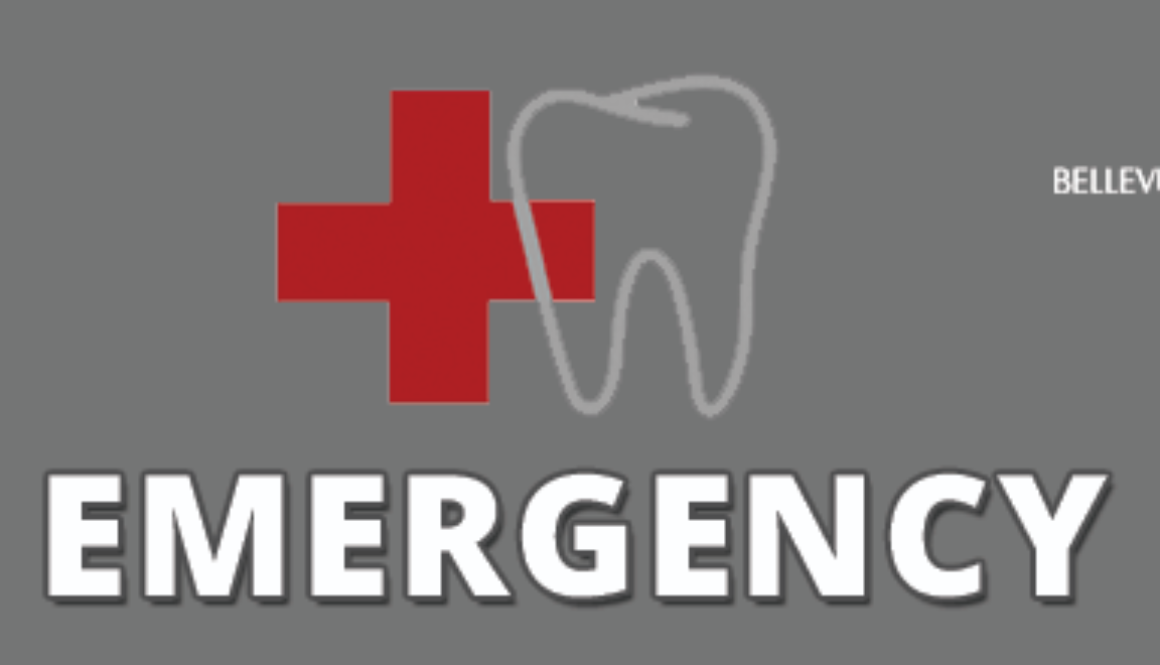What to do if you have a dental emergency
If you’ve suffered from a dental emergency, you know how frightening and debilitating it can be. I have received many calls from concerned patients that are unsure what to do after a trauma. So this is a good time to address how dentists manage a weekend or evening call after a tooth breaks, cracks, becomes loose, or is knocked out completely or even develops into a painful toothache with swelling.
As always, prevention is best. You can prevent some traumatic sports injuries by wearing a mouthguard to stop your teeth from being dislodged or broken. You should also avoid any hard foods, like ice and popcorn, that may result in your teeth cracking or breaking. However, despite these precautions, if you suffer from a dental emergency, you should see your dentist soon and not wait for pain.
There are certain dental emergencies that require you to go to a hospital for treatment. These include: jaw fractures; jaw dislocations; serious lacerations of the soft tissues of the face and mouth, and an abscess or infection that is very swollen or that is impacting breathing or swallowing, especially if you have serious medical conditions.
If you suffer from a dental emergency on a weekend or after your dentist’s office hours, it is OK to contact your dentist at their emergency phone number. It is best to get some advice from an expert and not wait for things to get worse. Sadly, I have seen many patients come to me after “toughing it out” then it is too late to save the tooth or they need a root canal. Your dentist wants to help, so they have an emergency phone number for this very reason.
In this article, I will review some common dental emergencies and what they mean…
- Toothache: While this may also be due to “sensitive teeth”, you know it’s an emergency when the pain suddenly increases in magnitude and frequency. This means that you have a potential tooth problem, such as a cavity, crack or abscess. Also, the pain increases after being provoked by touch, temperature or chewing. This is the most common call that dentists receive on the weekend.
- Loose teeth: If you were struck by an object, fell, or bit on a hard food you could have injured the tooth and its surrounding ligaments. Even if your teeth are loose but not painful, it could mean a tooth injury or localized infection. If the loose tooth is accompanied by red and bleeding gums, it could indicate advanced gum disease. If left untreated, it could result in heart disease and other medical problems.
- Swollen jaw or mouth: Swelling along the jaw and mouth could be caused from a swollen lymph node or tooth infection. If you are in severe pain, it’s a dental crisis and you should consult us immediately. If it’s just tender, you can wait and watch to see if it subsides. Lymph nodes develop swelling and pain due to disease (even a cold or flu) or infection. They should not cause swelling that is noticeable in the mirror, that is an abscess.
- Numbness or a total lack of sensation: This could mean that the infection has progressed so far that you have an abscess close to the nerve and you may need a root canal. This could also be caused by other diseases in the jaw. Sudden onset of numbness deserves a call to the dentist.
- Metallic or bitter taste in the mouth: This could be due to a broken filling. It is very important to get a broken filling treated promptly, otherwise it could turn into a bigger problem that would need a crown or root canal.
- Jaw pain: While this could be due to various reasons, ranging from a broken tooth to arthritis, and from stress to joint pain, it is important to rule out a cracked or infected tooth. You should consult us ASAP, as we can identify the source of the pain and treat it.
- Persistent headaches: If your headache coincides with a toothache, they may be related, as the nerves to both regions originate from the same location in your brain. Do not disregard your headaches, particularly chronic headaches without the advice of your doctor and dentist.
- A mouth or lip laceration: When you have a deep cut in the mouth or crosses the pink portion of your lip across to the skin, this needs to be evaluated. If this is deep, continues to ooze, and potentially can leave a scar, it should be evaluated. If there is a laceration within the lip/mouth that is not deep and stops bleeding on its own, then just use lots of ice. Lacerations around the mouth are common and tend to swell after 1-2 days so be prepared with ice afterwards. Again, if in doubt you should head to the ER or call me.
So, now you know the different symptoms and conditions of common dental emergencies. While it is easy to ignore the first symptoms or delay treatment, it’s always a good idea to get an expert opinion. Here’s to the efficacious and prompt treatment of your dental emergency.
For more information on how to treat your dental emergency, contact Dr. Libby Finnessy of Bellevue Dental Health at 425-641-3311 or at info@bellevuedentalhealth.com.

